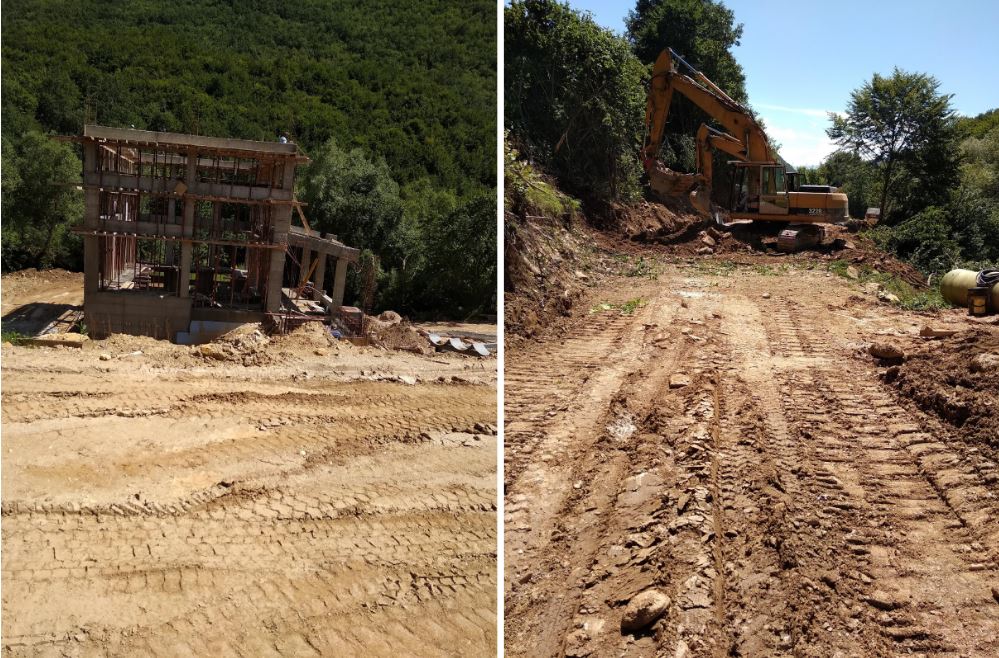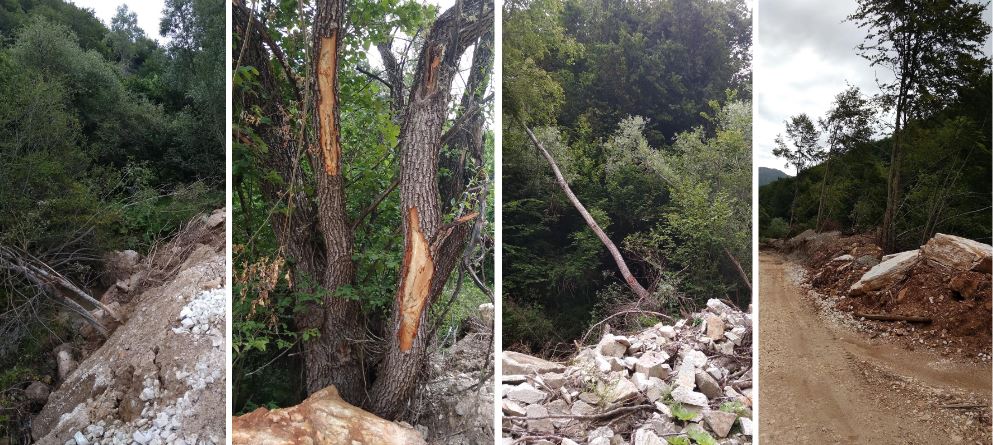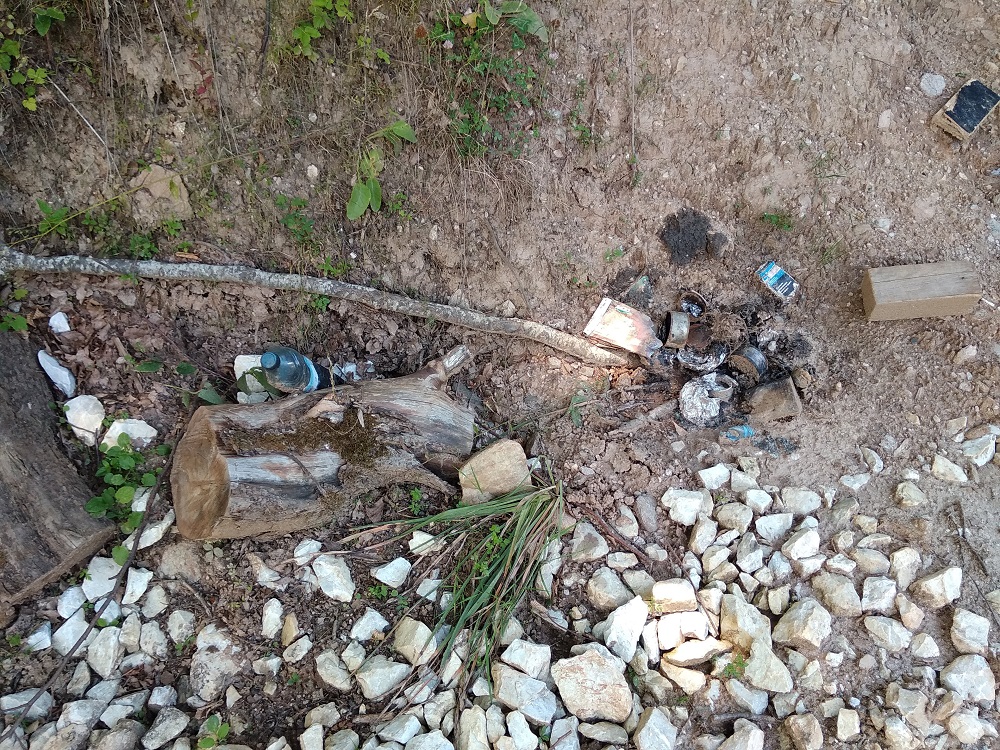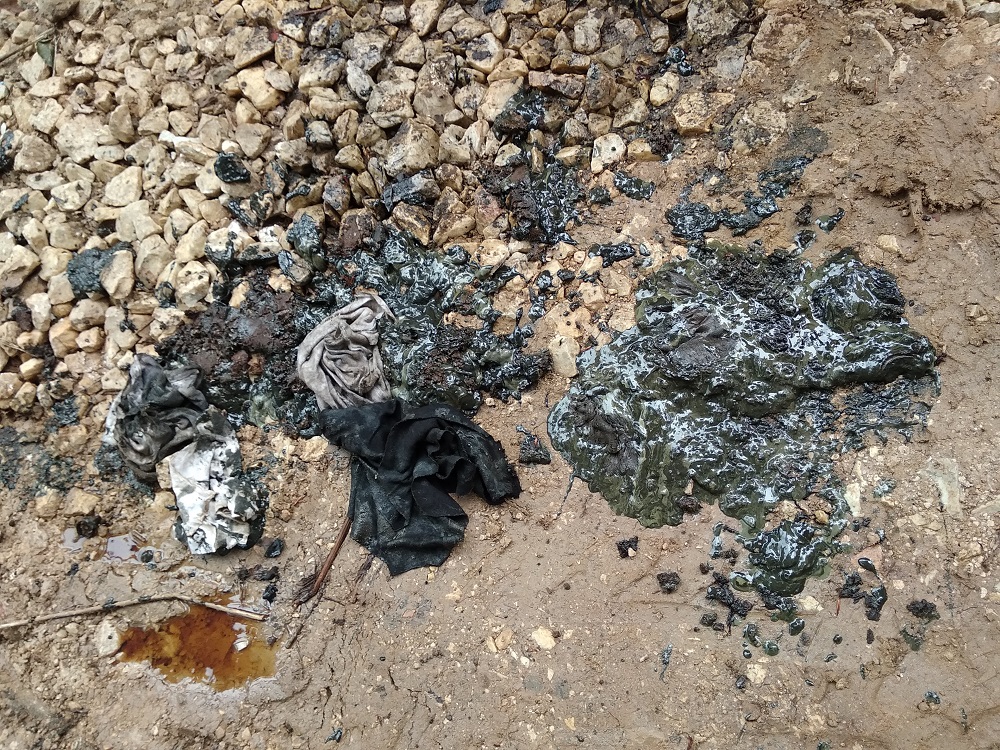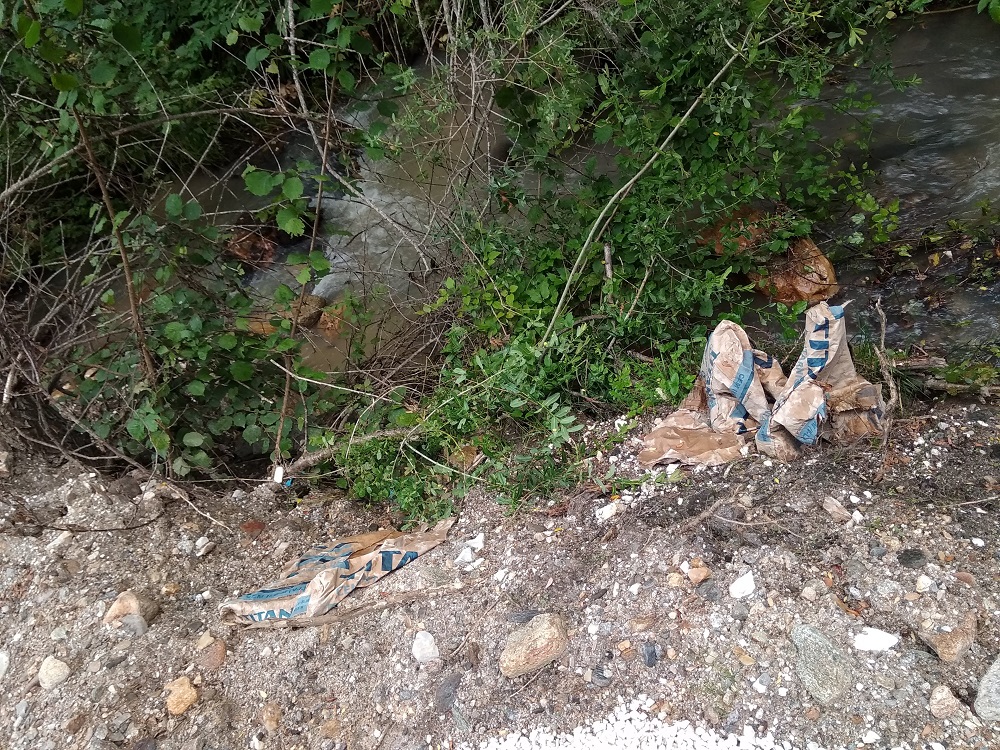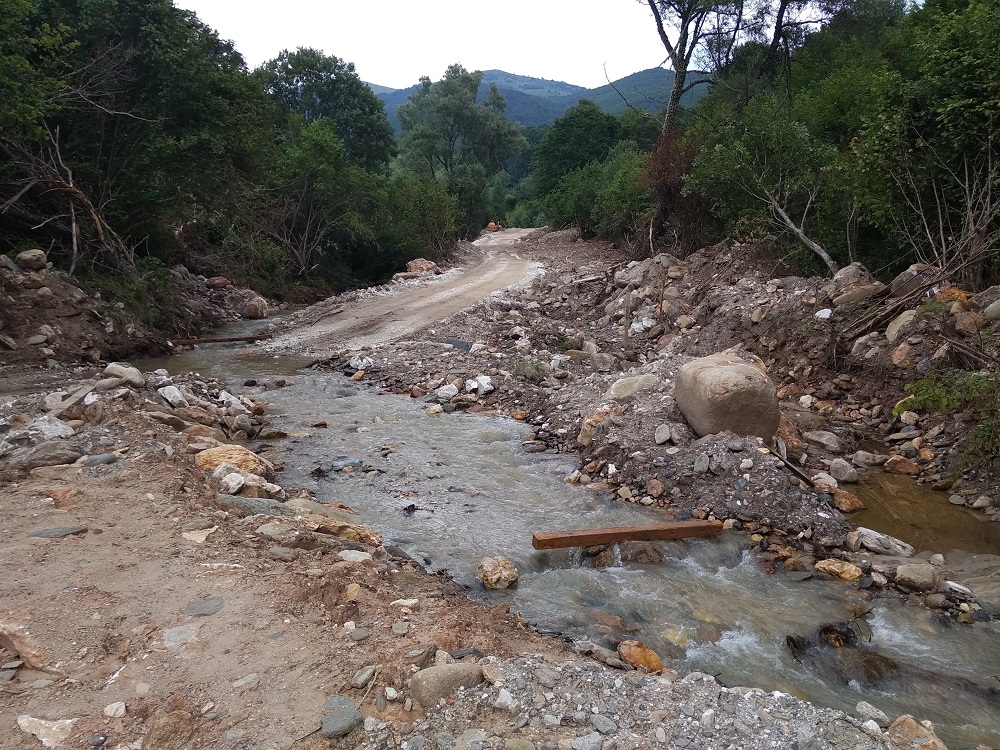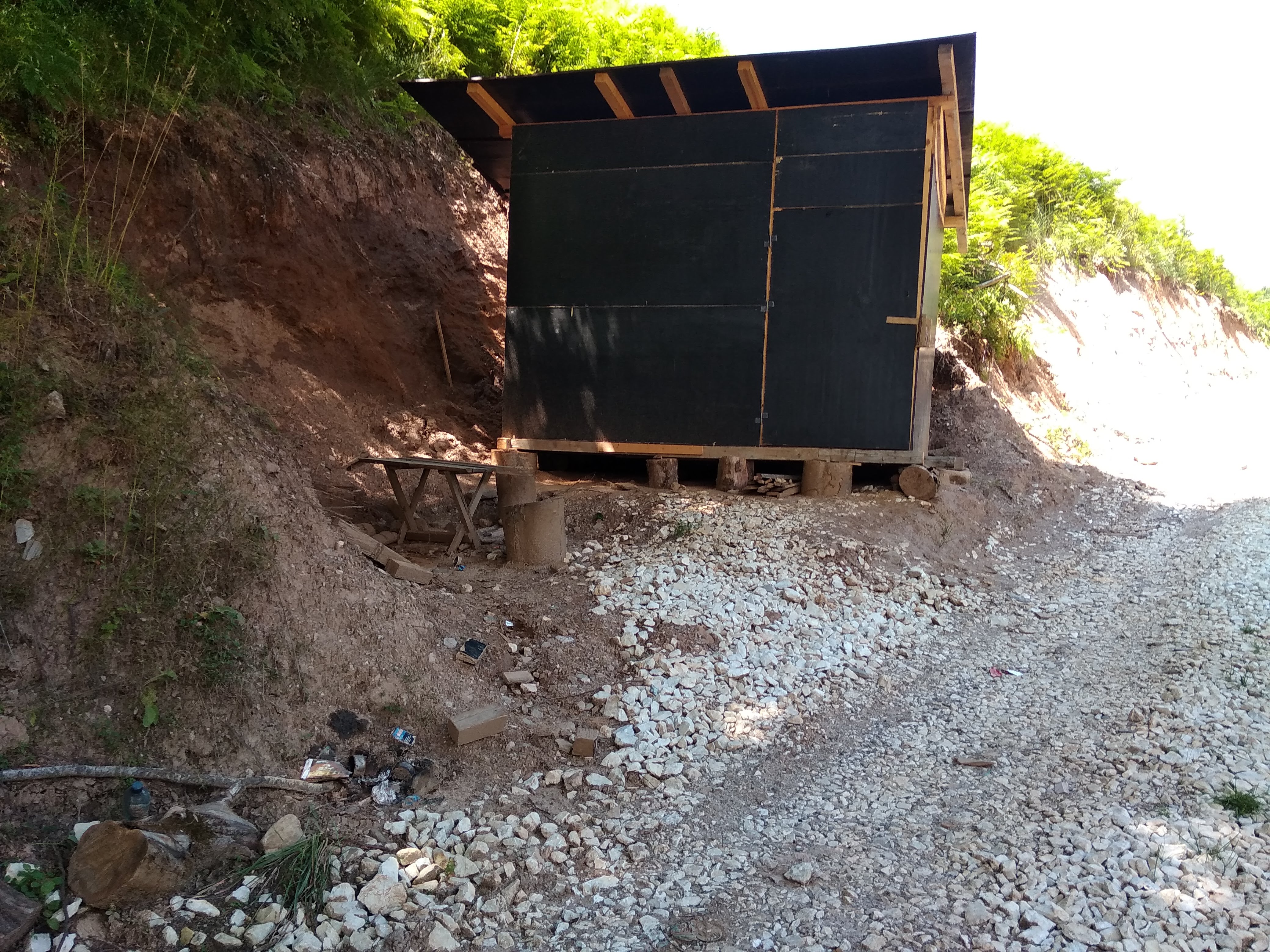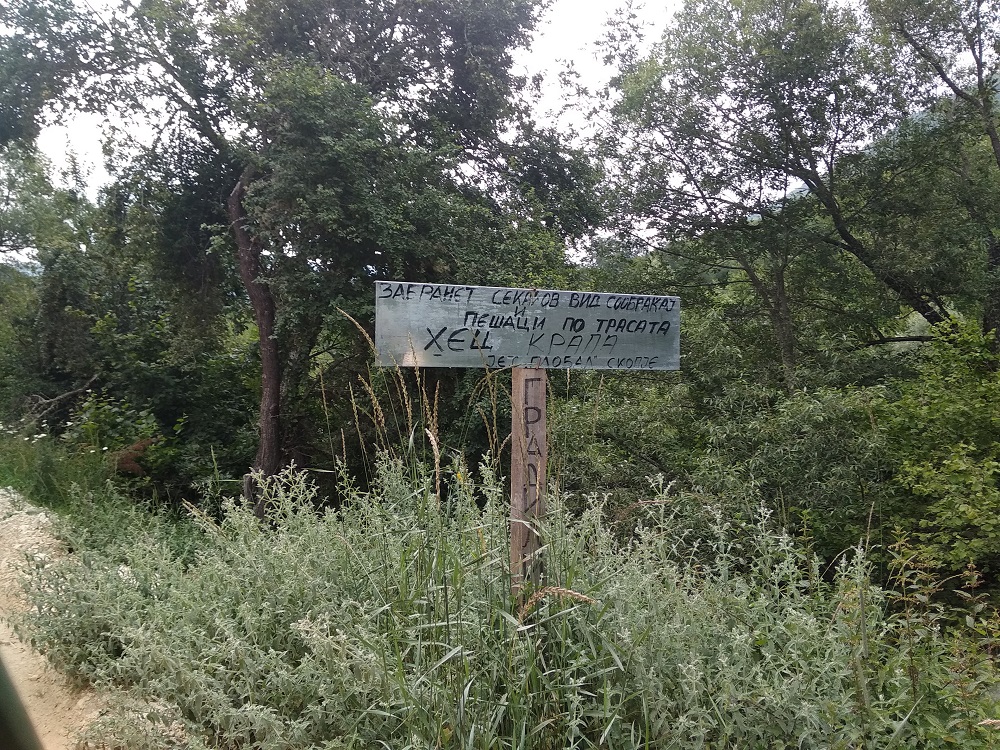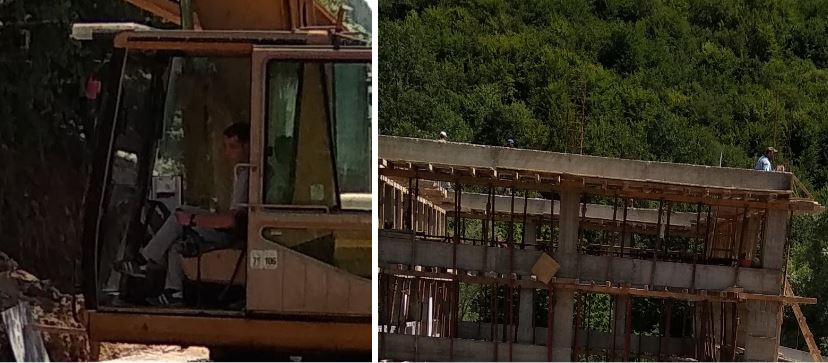Krapska Reka small hydropower plant, Macedonia
Loopholes in the EBRD’s due diligence, together with a lack of assessment and monitoring by Macedonia’s local and central government, has proven to be a lethal combination for the country’s rivers. A prime example is the Krapska Reka small hydropower project. The authorities’ failure to recognise the location as part of the proposed Jakupica National Park, Emerald area and a future Natura 2000 site, on top of poor mitigation measures and construction practices, have caused irreversible damage to this small river valley.
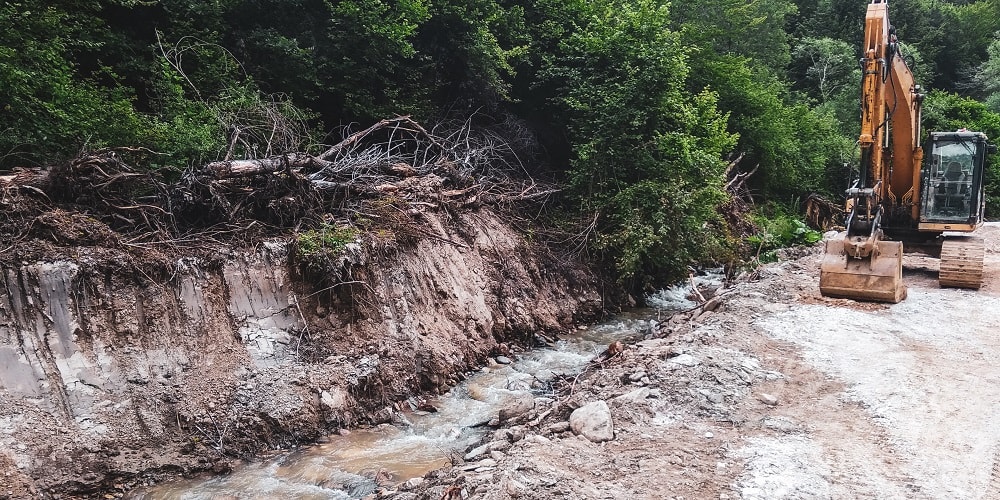
Stay informed
We closely follow international public finance and bring critical updates from the ground.
Key facts
- Project: Krapska Reka small hydropower plant, ref. no. 45
- Location: Krapa village, Makedonski brod municipality, Macedonia
- Concession-holder: Aktuel Energy Group DOO – Skopje, Macedonia
- Concession period: 23 years starting from May 4, 2015
- Financing: EUR 4,100,000 loan from the EBRD’s Direct Finance Framework – project: 48113, signed on November 3, 2017.
Key issues
- Both the intake and the powerhouse are located inside a protected area. Read more>>
- The threatened river and the surrounding water springs are a source of drinking water for nearby villages. Read more>>
- The EBRD has not disclosed any environmental impact assessment or additional studies possibly conducted in the project appraisal process. Read more>>
- The project is not compliant with mitigation measures and good construction practices required by the Macedonian legislation and the EBRD’s Environmental and Social Policy. Read more>>
- EBRD’s obscure loan to Aktuel was made public only after the contract had been signed, making it impossible to raise concerns and prevent the harm. Read more>>
- The EBRD fails to respond adequately to our new evidence against the project. Read more>>
Background
Krapska river valley – a significant biodiversity and speleological site
The valley of the Krapska river is part of the proposed Jakupica National Park, Emerald area, that could become part of the Jakupica Natura 2000* area upon Macedonia’s entry into the European Union.
* Natura 2000 is a network of protected natural sites on the territory of the EU.
The area is considered a biodiversity hotspot and is home to numerous endemic and endangered species – most notably the Balkan Lynx (Lynx lynx), but also the Brown Bear, Balkan Chamois, European Pine Marten, Golden Eagle, Black Stork, Eurasian Otter, Large Copper butterfly, Rosalia Longhorn beetle, among others.
Krapa village rests on the southern slopes of the Jakupica mountain range – the only remaining migratory route for large mammals from the Mavrovo National Park and the surrounding protected areas to Jakupica and back. Numerous surrounding caves also host large populations of various endangered bat species.
Krapska Reka, its river bed and the surrounding caves are considered an extremely important speleological site – subject to continuous speleological research in the past 50 years.
The river is Macedonia’s most important and most valuable sinking river. Several hundred meters downstream from the Krapa village it sinks into a cave system filled with underwater lakes, more than 10 kilometers long.
There have been unconfirmed reports from diving expeditions that an unknown species of blind fish inhabits the lakes, and further exploration is planned by speleological organisations to confirm the findings.
Although it is subject to additional research, experts claim that this is not the only part of the river where water sinks into the karst. The river itself together with the water springs in the area – some of which seem to be connected to the river – is an important source of drinking water for many of the surrounding villages.
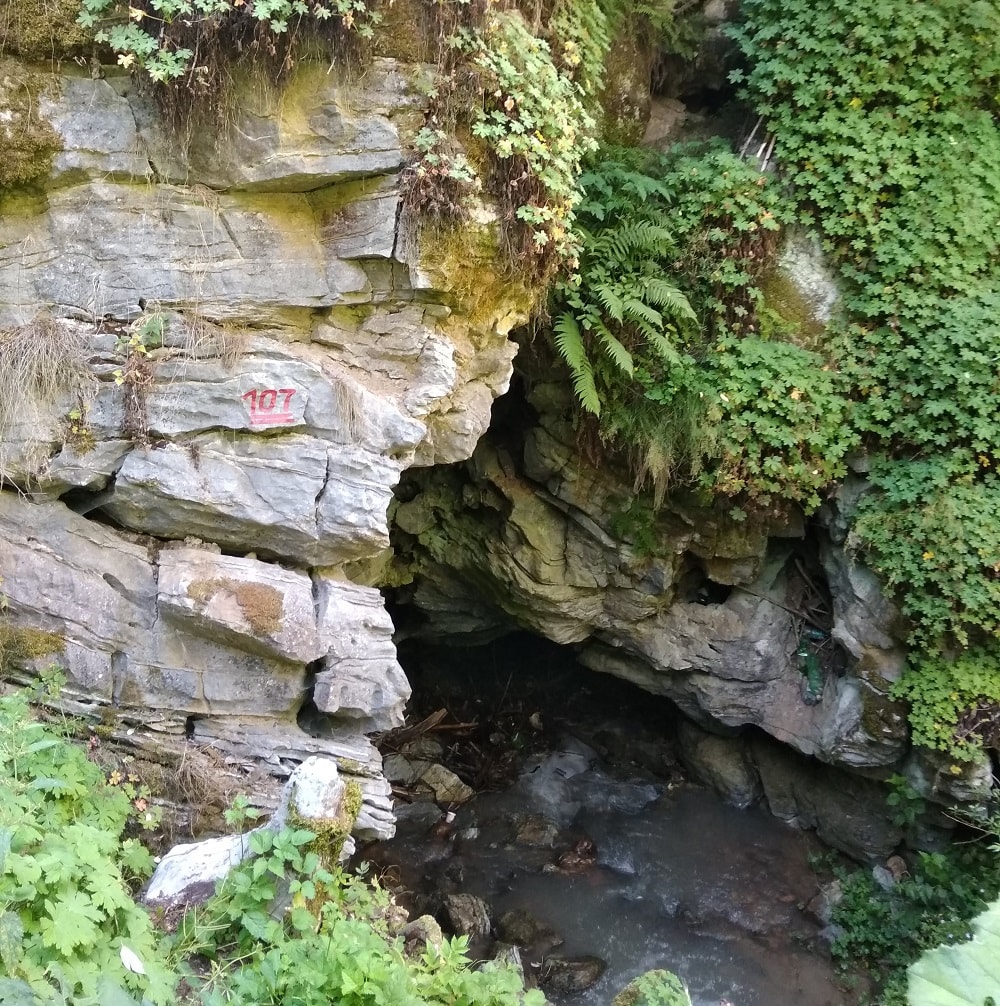
Faulty assessment process
The concession-holder Aktuel Energy Group DOO – Skopje is already at an advanced stage of the plant construction. The powerhouse is around one kilometer upstream of the village and the intake is some four kilometers upstream of the powerhouse.
Since it is inside a protected area, according to the EBRD Environmental and Social Policy this should have marked the Krapska Reka plant as a Category A project and, as such, subject to a full Environmental Impact Assessment (EIA) process, which includes public consultations.
To our knowledge, no such study was conducted – only a scant “environmental elaborate”. The EBRD states that it has commissioned additional studies. Since these are not publicly available, we cannot assess whether they identified any of the risks mentioned in this report and whether any mitigation measures were proposed.
Such additional studies also carry no weight within the national legal enforcement system and cannot be challenged in court if insufficient, unlike proper Environmental Impact Assessments. The mitigation measures recommended in the environmental elaborate are, considering the importance of the area, insufficient.
No mitigation measures and poor construction practices
The environmental elaborate for the Krapska Reka was finalised in February 2015. Together with the national legislation, it outlines mitigation measures in several categories: protection of flora and fauna, waste management, soil and water quality, and good construction practice.
A field visit in July 2018 showed that most of the measures were disregarded during construction.
Apart from violating the national legislation, our findings show breaches of the following provisions of the EBRD’s Environmental and Social Policy:
- Performance Requirement 2 – Labour and Working Conditions
- Performance Requirement 3 – Resource Efficiency and Pollution Prevention and Control
- Performance Requirement 6 – Biodiversity Conservation and Sustainable Management of Living Natural Resources
Late and concealed disclosure prevented timely counter-action by civil society
Since the project was financed under the EBRD’s Direct Financing Facility, the bank’s current Public Information Policy only required disclosure of project information after loan signing. This meant that by the time the loan was discovered, construction was underway and it was too late to make major changes.
In its 2019 policy revisions the EBRD needs to bring about a much needed change. Project information must be disclosed in advance to allow for a proper participation of all concerned.
No action taken by the EBRD
In April 2018 – when the EBRD was still responsive to communication about the Krapska Reka hydropower plant – the bank claimed that this project is outside the protected areas.
We used GPS to record exact locations of the powerhouse and the intake and compared to the data/shapefiles of Macedonian protected areas. Krapska Reka, along with the powerhouse, pipeline and intake of the Krapska Reka plant were clearly inside a protected area.
After compiling all the necessary information, a report with all the findings was prepared and sent to the EBRD in October 2018. We requested the following:
- For the EBRD’s main and national offices to disclose all environmental studies done during the project appraisal;
- For constructions works to be paused until our findings are verified;
- For the EBRD to consider stopping disbursements and cancelling the project, should it be confirmed that the project is, in fact, contravening the provisions of the EBRD’s own Environmental and Social Policy.
On 5 February 2019 the EBRD finally responded but did not answer our question about the location of the plant, nor about disclosing the additional studies. The only commitment made was to visit the site in 3-4 months from now. Meanwhile, construction of the plant is nearing completion and yet another beautiful river valley is being destroyed.
Latest news
Kambarata hydropower project: greater scrutiny from international banks is needed
Blog entry | 19 December, 2025Kyrgyzstan is promoting the massive 1,860 MW Kambarata-1 Hydropower Plant (HPP) as a solution to its ongoing energy crisis. The project, a joint effort with Uzbekistan and Kazakhstan on Naryn River, is actively seeking funding from international financial institutions like the World Bank, the European Bank for Reconstruction and Development (EBRD) and the European Investment Bank (EIB).
Read moreAlbania’s Skavica dam can’t get off the ground – time to finally cancel it!
Blog entry | 24 November, 2025The highly damaging hydropower project could hardly have had stronger political support at its inception, with the country’s parliament passing a special law in 2021 to appoint U.S. construction giant Bechtel as the main contractor. But four years later, the project has stagnated, with no environmental permit and no financing.
Read moreRomania’s Parliament paves the way for environmental destruction and ‘foreign agent’ repression
Blog entry | 20 October, 2025Romania stands at a dangerous crossroads. Last week, a law initiated by the senator Daniel Zamfir in 2022 and already then rejected by the Senate, passed by a crushing majority (262–33) in the decisive Deputies Chamber.
Read moreRelated publications
Kungrad 1-3 wind power project, Uzbekistan
Policy comments | 11 March, 2025 | Download PDFKungrad is one of several large-scale renewable projects featuring extensive transmission lines slated for remote, wild areas in Central Asia – an alarming practice that hinders the sustainable energy transition.
How to interact with development banks lending to hydropower projects in Central Asia: A toolkit for civil society activists
Toolkit | 3 February, 2025 | Download PDFThis toolkit is aimed primarily at civil society organisations in Central Asia tackling the construction of dams or other unsustainable water infrastructure.
The Upper Horizons complex, Bosnia and Herzegovina
Briefing | 18 December, 2023 | Download PDFThe Upper Horizons hydropower complex has been planned since the mid-20th century, and is planned to consist of three plants — Dabar, Nevesinje and Bileća — linked by a series of tunnels and channels. If completed, it would have a devastating impact on the karst ecosystems of eastern Herzegovina and beyond.
